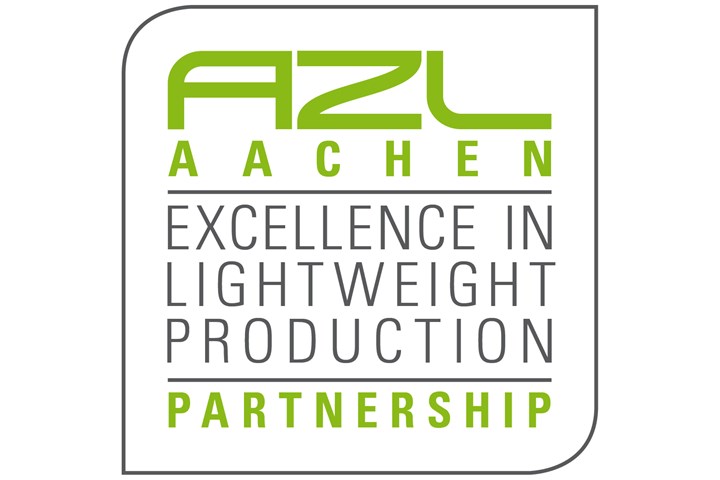Teijin joins AZL Partner Network
Participation with the cross-industry network’s upcoming multi-material battery casing project and will accelerate Teijin’s automotive composites expertise.

Photo Credit: AZL Aachen
Teijin Ltd. (Tokoyo, Japan) announced on Oct. 22 that it has joined the AZL Partner Network for Lightweight Production Technology, a cross-industry network for joint business development and technology development organized by service and engineering provider AZL Aachen GmbH (Aachen, Germany) and involving nine institutes and some 80 companies in the field of lightweight production. On Oct. 22, the network will be kicking off one of its many joint projects, an eight-month project to develop and manufacture multi-material battery enclosures for electrical vehicles (EV).
According to Teijin, the objectives of the AZL Partner Network align closely with the company’s vision and goals of developing lightweight materials and components for next-generation vehicles. Through the participation in this project, as well as two other projects, the Teijin Group says it will accelerate its automotive composite expertise.
The company describes some of its past experience in the automotive industry to warrant its interest in joining AZL Aachen’s eight-month project, including acquisition of Contintental Structural Plastics (CSP, Auburn Hills, Michigan) in 2017 to become a Tier 1 supplier of multi-material automotive composites and acquisition of automotive-composite suppliers Inapal Plásticos SA of Portugal and Benet Automotive s.r.o of the Czech Republic. Further, Teijin established its Teijin Automotive Center Europe GmbH (TACE) this past February as a base for developing technical functions using the group's automotive composites to strengthen and accelerate its conceptualization, designing, prototyping, evaluation, marketing and technical research of next-generation automotive components.
Related Content
-
Carbon fiber, bionic design achieve peak performance in race-ready production vehicle
Porsche worked with Action Composites to design and manufacture an innovative carbon fiber safety cage option to lightweight one of its series race vehicles, built in a one-shot compression molding process.
-
Automotive chassis components lighten up with composites
Composite and hybrid components reduce mass, increase functionality on electric and conventional passenger vehicles.
-
McLaren celebrates 10 years of the McLaren P1 hybrid hypercar
Lightweight carbon fiber construction, Formula 1-inspired aerodynamics and high-performance hybrid powertrain technologies hallmark this hybrid vehicle, serve as a springboard for new race cars.












